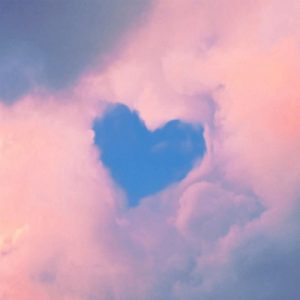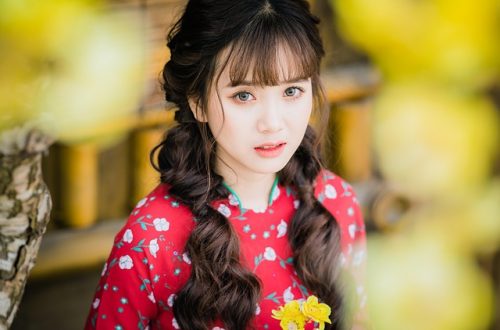
What is love? Do you still hope for love?
What is love?
Zhang Youyi was only fifteen when she married Xu Zhimo, having dropped out of school.
Before she could even begin to dream of a happy married life, Xu Zhimo doused her with a cold shower of contempt, calling her a “country bumpkin” and subjecting her to years of emotional neglect. Later, after Xu fell in love with Lin Huiyin, he forced the pregnant Zhang Youyi to have an abortion and divorce him. When Zhang Youyi refused, he abandoned her in a foreign country, ignoring her until she was forced to agree.
Even after treating Zhang Youyi so despicably, years later someone asked her: Did you ever love Xu Zhimo?
She replied: “You know, I can’t answer that question. It confuses me, because everyone keeps telling me that since I did so much for Xu Zhimo, I must have loved him. But I can’t define what love is. I’ve never told anyone ‘I love you’ in my life. If caring for Xu Zhimo and his family counts as love, then perhaps I did love him. Among the women he encountered in his life, I might have loved him the most.”
Was Zhang Youyi’s feeling for Xu Zhimo love?
Yes, and no.
Because within this love, Zhang Youyi appeared far too humble.
Humble like Eileen Chang.
Eileen Chang, who saw herself as a perfect match for a literary genius, threw herself headlong into love with Hu Lancheng—a man fourteen years her senior, married, and a notorious traitor. In this love affair, she meekly mocked herself, saying she was “humble to the dust, yet blooming like a flower.” Yet she was still betrayed and wounded by Hu Lancheng, left utterly shattered. Zhang Ailing, who wrote about love her entire life, stumbled badly in love herself.
The rain falls softly, like living by a stream. I’d rather it rained every day, thinking you didn’t come because of the rain.
—Zhang Ailing, “The Little Reunion”
Yet if given the choice again, she would still fall for someone who understood her, knew her, and possessed extraordinary talent.
Call her foolish, stubborn, or self-tormented—
That is love.
Love is unwavering devotion.
It is Jin Yuelin, who adored Lin Huiyin for decades without ever winning her heart. Decades after her death, at eighty years old, Jin hosted an old friend. To the puzzled guests, he declared: Today is Lin Huiyin’s birthday.”
It is sixteen-year-old Guo Xiang declaring, “Our first meeting at Fengling Ferry sealed my fate with Yang Guo.”
Their love was separated by mountains and seas, obstacles insurmountable.
They remained unmarried their entire lives, waiting for an outcome that could never be.
Love is what you cannot have.

It is Emma in the film One Day, who cried out after a lifetime of longing for Dexter: “I cannot control how unforgettable you are to me, yet I no longer hold any expectations for you.
I love you, but I no longer like you.”
Love is self-liberation.
Yet love is also something one cannot liberate oneself from.
It is seventy-two-year-old Lu You revisiting Shenyuan Garden, his heart aching at the sight of familiar things, and penning: “Beneath the bridge, spring waves run green with sorrow,
Once reflecting the startled swan’s graceful form.”
Over forty years had passed since their love poem “The Golden Hairpin.” Now a white-haired man nearing death, he wept uncontrollably before the garden’s flowers and trees, his eyes filled only with the image of his beloved Tang Wan.
Though our mountain vows remain,
How can silk letters convey my heart?
It was Su Shi, awakened in the dead of night by a dream of his deceased wife, overcome by grief, lamenting: “Ten years apart, life and death, both vague and distant. Not thinking of her, yet unforgettable.”
It was Gui Youguang, in his “Memorial to Xiangji Pavilion,” recalling the departed, his sorrow mingling with emotion, concluding: “In the courtyard stands a loquat tree, planted by my wife in the year of her death. Now it stands tall and lush, its canopy spreading wide.”
The greatest distance between lovers in this world has alw
ays been life and death.
Yet love is destined to bring them together.
It echoes Rick’s question in Casablanca: “Of all the towns in the world, of all the bars in that town, she walks into mine.”
You turn left, she turns right.
Then meet face to face at the world’s farthest edge.
Love can have a happy ending.
Like Sima Xiangru and Zhuo Wenchun, who fell for each other at first sight like phoenixes seeking their mates.
They eloped despite fierce gossip,
and though poverty-stricken,
ran a wine shop together with mutual respect. Af
ter enduring many hardships, they retired to the countryside to spend their lives together.
To win one heart, to grow old together, never part.
Yet love can also end in tragedy.
Like the sorrowful tale of Liang Shanbo and Zhu Yingtai, who transformed into butterflies at their graves to fly together.
Like Liu Lanzi and Jiao Zhongqing, who chos
e d
eath for their love, hanging themselves from the southeast branch. They became a pair of birds, naming themselves mandarin ducks.
At its most ordinary, love is the daily grind of rice, oil, salt, soy sauce, vinegar, and tea for common folk—enduring storms until death do us part, yet guarding against collapse amid the tedium of routine.
At its grandest, love is King You of Zhou’s “beacon fires to amuse feudal lords,” or Emperor Xuanzong’s “obsession with beauty that toppled a kingdom.” Centuries-old empires crumbled.
Love is destined to be together, yet destined to be apart;
Love is unattainable, yet impossible to let go;
Love is ultimately forgiven, yet unforgivable.
Love is the reunion where “golden wind and jade dew meet, surpassing countless earthly joys,”
Yet also the missed encounter where “the face is gone, where has it gone? Peach blossoms still smile in the spring breeze.”
Love is a house, two people, three meals, four seasons.
What is love, truly?
There is no answer.
This question has been pondered for millennia in human cultural history, yet no fully satisfying response has emerged. It seems to be everything, and yet nothing at all.
Put plainly, it is merely an electrical signal transmitted through neural pathways in the brain—yet this transmission is the most mysterious component of life itself.
To me, love isn’t so sacred.
It’s as natural to humans as eating when hungry.
Some find satisfaction in a bowl of spicy and sour shredded potatoes with white rice. Others eagerly anticipate secret-recipe braised pork with sauce. Still others won’t eat unless they see stir-fried matsutake mushrooms.
But matsutake are rare. Those who choose matsutake actually choose to go hungry.
After enduring hunger long enough, compromise sets in. They turn to the potato shreds after all.
Taking a few bites, they discover with delight that the potato shreds possess a crispness reminiscent of matsutake.
Whether the potato shreds truly suit th
eir palate or hunger makes everything taste delicious no longer matters.
Being full is what truly counts.
You ask if I still yearn for love?
Of course I do.
After enduring hunger for over a decade, even a simple bowl of plain white rice would make my mouth water.
But it’s like the man Cui Cui waited for in Border Town:
He might come tomorrow, or he might never come at all.



